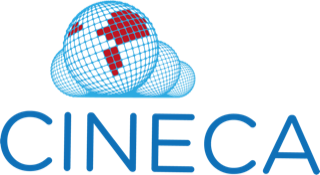Date: 28 April 2021
Time: 3:00 PM UTC / 5:00 PM CEST
Materials: Slides
Location: Online
Contact: Mamana Mbiyavanga & Marta Lloret Llinares
Overview
The CINECA "How FAIR are you" webinar series continues with a presentation by Thomas Keane, CINECA coordinator, EMBL-EBI.
As personalised medicine is making tremendous progress globally, facilitating secure access to human data for researchers and clinicians is key to achieving this in an ethically and legally responsible manner. The CINECA project aims to promote this by delivering a federated infrastructure for data discovery of human genetic and phenotypic data, facilitating transcontinental human data exchange for research and clinical applications. Key objectives of the CINECA project include developing solutions both to the challenges of delivering transcontinental security requirements for data access, and to the ethical, legal and societal commitments where data cannot move outside a legal jurisdiction.
This webinar will focus on how the CINECA project is applying FAIR (Findable, Accessible, Interoperable, Reusable) principles in practice. Enabling federated data discovery, data access, and research and analysis, by using open standards across the federated network, is crucial in order to fully exploit the potential of human cohorts to drive personalised medicine. The Global Alliance for Genomics and Health (GA4GH) is a standards setting organisation that aims to facilitate interoperability in genomic and healthcare data, while respecting FAIR principles. CINECA is working in collaboration with other GA4GH driver projects developing and implementing the methods and infrastructure which will allow effective use of widely-dispersed data to improve the size and quality of datasets available for disease research.
About the speaker
Thomas Keane is the team leader for the European Genome phenome Archive (EGA) and the European Variation Archive (EVA) at EMBL-EBI. He is responsible for strategic planning for EGA and EVA, is a member of the Global Alliance for Genomics and Health (GA4GH) steering committee, and co-leads the Large-scale Genomics workstream. Before joining EMBL-EBI as Team Leader in 2016, Thomas led the Sequence Variation Infrastructure group in the Computational Genomics programme at the Wellcome Trust Sanger Institute. His research interests are in using genomic technologies to understand biological processes, with a particular focus on rodent models for human disease. He is the scientific lead for the Mouse Genomes Project, a collaboration with the Wellcome Sanger Institute. He also holds an honorary professorship at the University of Nottingham.
About CINECA
The CINECA (Common Infrastructure for National Cohorts in Europe, Canada, and Africa) project aims to develop a federated cloud enabled infrastructure to make population scale genomic and biomolecular data accessible across international borders, to accelerate research, and improve the health of individuals across continents. CINECA will leverage international investment in human cohort studies from Europe, Canada, and Africa to deliver a paradigm shift of federated research and clinical applications. The CINECA consortium will create one of the largest cross-continental implementations of human genetic and phenotypic data federation and interoperability with a focus on common (complex) disease, one of the world’s most significant health burdens. CINECA has assembled a virtual cohort of 1.4M individuals from population, longitudinal and disease studies. Federated analyses will deliver new scientific knowledge, harmonisation strategies and the necessary ELSI framework supporting data exchange across legal jurisdictions enabling federated analyses in the cloud. CINECA will provide a template to achieve virtual longitudinal and disease specific cohorts of millions of samples, to advance benefits to patients. It will leverage partner membership of standards and infrastructures like the Global Alliance for Global Health, BBMRI, ELIXIR, and EOSC driving the state of the art in standards development, technical implementation and FAIR data.


